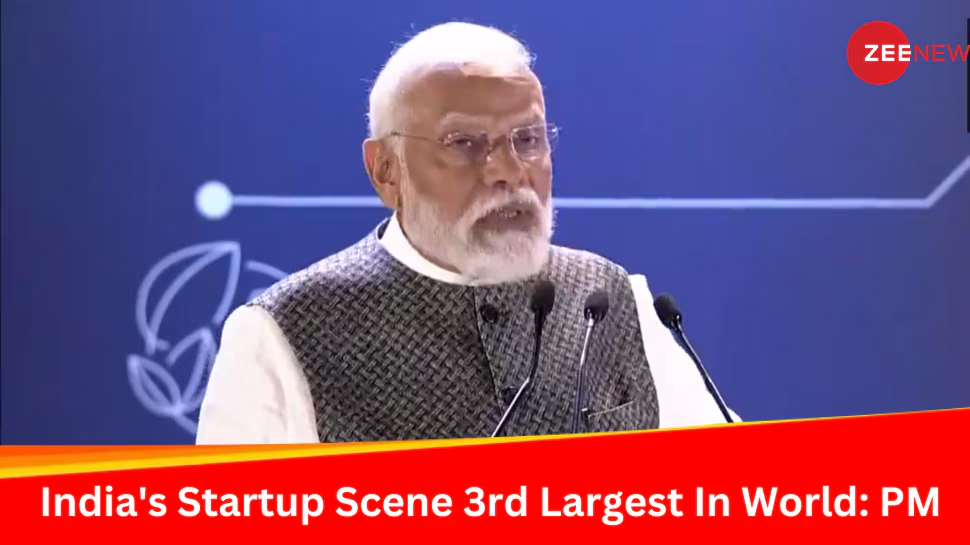India has officially secured its position as the world’s third-largest tech startup ecosystem, standing just behind the United States and the United Kingdom. Despite a slight decline in total funding compared to last year, the achievement underscores India’s rapid rise as a global hub for innovation, entrepreneurship, and technology-driven growth.
According to a recent report by Tracxn, Indian tech startups collectively attracted about USD 7.7 billion in funding during the first nine months of 2025, a testament to the resilience of entrepreneurs and investors in the face of global economic uncertainty.
A Journey from Emerging Market to Global Powerhouse
Barely two decades ago, India’s startup ecosystem was at a nascent stage. Today, it boasts over 1,20,000 registered startups, spanning sectors like fintech, healthtech, edtech, AI, SaaS, and deep tech. Government policies, digital penetration, and a thriving youth population have transformed India from an outsourcing hub to a breeding ground for cutting-edge innovation.
India’s startup journey mirrors its digital transformation story. With affordable data, increasing smartphone adoption, and initiatives like Digital India, entrepreneurs have been empowered to reach customers at scale. The result is a vibrant ecosystem where unicorns emerge frequently, and global investors treat India as a core market.
The Numbers Behind the Achievement
- Global Ranking: India now ranks third, just after the US and UK, surpassing countries like Israel, Canada, and Germany.
- Funding in 2025 (Jan–Sept): Around USD 7.7 billion was raised, compared to USD 10 billion in the same period in 2024. Despite the 23% YoY dip, India maintained its position due to sheer volume of startups and investor interest.
- Unicorns: India is home to more than 115 unicorns, with several soonicorns (soon-to-be unicorns) on the horizon.
- Active Investors: Both global giants (Sequoia, Accel, SoftBank, Tiger Global) and local funds (Blume Ventures, Chiratae, Kalaari) are backing Indian founders.
Sectors Driving the Growth
India’s startup boom is not limited to one sector. Multiple industries are fueling its rise as a global innovation hub:
- Fintech
- India is one of the fastest-growing fintech markets, with startups like PhonePe, Razorpay, and Zerodha redefining digital payments, insurance, and investments.
- UPI (Unified Payments Interface) alone has turned India into a global model for real-time payments.
- SaaS (Software as a Service)
- Startups such as Zoho, Freshworks, and Postman have put India on the global SaaS map.
- SaaS exports are projected to cross USD 50 billion by 2030, with India poised to become the “SaaS capital of the world.”
- Edtech
- Despite post-pandemic funding challenges, companies like Byju’s, Unacademy, and PhysicsWallah have kept the sector relevant by focusing on hybrid learning and upskilling.
- Healthtech
- Startups like Practo, PharmEasy, and Tata 1mg are leveraging telemedicine, AI diagnostics, and e-pharmacy to transform healthcare access.
- AI and Deep Tech
- 2025 has seen a surge in AI-driven startups tackling everything from generative AI tools to supply chain optimization.
- With government support, deep tech innovations in semiconductors, EVs, and space tech are on the rise.
Government Support: A Key Catalyst
The Indian government has played a critical role in nurturing the ecosystem:
- Startup India Initiative – Launched in 2016, offering tax benefits, funding support, and easier compliance for new ventures.
- PLI Scheme (Production Linked Incentives) – Encouraging tech manufacturing in India, reducing dependence on imports.
- Digital India & India Stack – Infrastructure such as Aadhaar, UPI, and ONDC has created a digital foundation unmatched in the world.
- Policy Push for AI & Deep Tech – India’s draft National AI Mission emphasizes responsible AI, research grants, and global collaborations.
These initiatives have not only supported entrepreneurs but also created a favorable climate for investors.
Why Global Investors Are Betting on India
Despite global macroeconomic challenges, venture capitalists see India as a long-term bet. Some reasons include:
- Large Consumer Base – With a population of over 1.4 billion, India offers unparalleled scale.
- Young Demographics – Over 65% of the population is under 35, driving digital adoption.
- Talent Pool – India produces the world’s largest number of engineers annually, many of whom are founders or key startup employees.
- Resilience – Indian startups have shown adaptability during COVID-19, funding slowdowns, and regulatory changes.
Global investors believe that India is not just following Silicon Valley’s footsteps but is building a unique model of inclusive innovation.
Challenges Facing the Ecosystem
While the achievement is remarkable, the road ahead is not without hurdles:
- Funding Slowdown – The global funding winter has impacted valuations and deal sizes.
- Profitability Concerns – Many unicorns are still loss-making, raising questions about long-term sustainability.
- Regulatory Complexity – Sectors like fintech and crypto face evolving rules, which sometimes create uncertainty.
- Brain Drain vs Brain Gain – While many Indian founders succeed abroad, retaining top talent in India remains a challenge.
- Global Competition – Countries like Israel and Singapore are aggressively promoting their ecosystems to attract startups and capital.
The Road Ahead: From 3rd to 1st?
India’s ascent to the third-largest startup ecosystem is just the beginning. Experts predict that by 2030, India could become the second-largest ecosystem, driven by:
- Explosive growth in AI, clean tech, and EV startups
- Expanding digital infrastructure in rural areas
- Rising middle-class aspirations fueling demand for innovative products
- Stronger global partnerships and cross-border investments
If India can address its challenges around profitability and regulation, the dream of becoming the world’s largest startup hub may not be far-fetched





